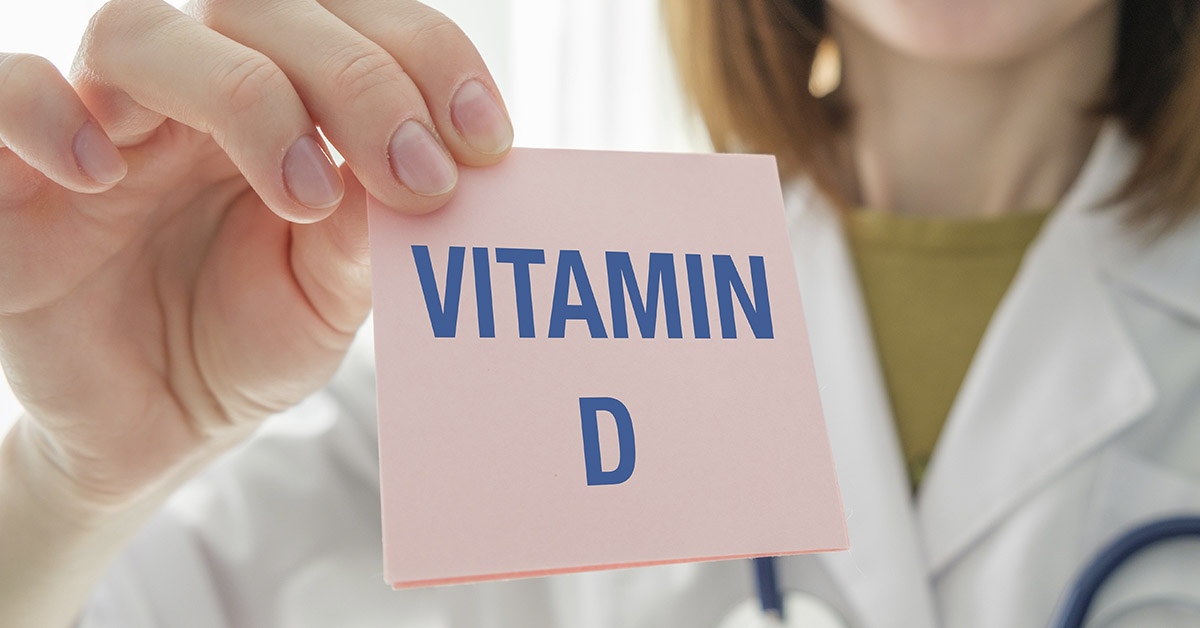In recent years, scientists have discovered so much about vitamin D. Before it was simply thought of as the accompaniment to calcium for strong, healthy bones. Now we know it is so much more than that, with new information being discovered every day. Despite its importance, deficiency is more common than you think and can lead to a variety of strange symptoms. These are some of the signs that you may be low in this essential vitamin that will surprise you.
All About Vitamin D Deficiency

Vitamin D is an incredibly important vitamin, and yet it is actually fairly easy to not get enough of it. The main reason why plenty of people are deficient is that they don’t have adequate exposure to sunlight each day. The body produces vitamin D when the skin is exposed to sunlight, and depending on where you live this can be difficult to achieve. Regions with limited sunlight or cold winters where you have to cover up when you go outside prevent vitamin D production. Sunscreen will also block the UV rays required for vitamin D. People who follow religions that require full-coverage clothing can’t achieve adequate sun exposure, and even those who live in warm, sunny places often spend much of their time inside for work, school, and even leisure time. We need 5 to 30 minutes of sun exposure to the face, hands, arms, and legs either daily or at least twice per week for sufficient vitamin D production. People with lighter skin tones will need less time, whereas those with darker skin tones will require more as the melanin in their skin naturally blocks UV rays.
A secondary way to reach vitamin D targets is through food. There aren’t very many foods that naturally contain vitamin D, so you will have to search for those that are fortified. These can often be dairy products, some juices, and occasionally cereals. There are certain medical conditions, gastrointestinal disorders, or medications that interfere with vitamin D absorption, making it even more difficult to reach vitamin D goals. Regular monitoring of vitamin D levels and incorporating sunlight exposure and dietary sources of vitamin D can help prevent and address deficiencies effectively. Beyond that, being aware of the symptoms of deficiency can help you to address and correct for the deficiency as quickly as possible, before it really begins to affect your health.
1. Fatigue and Tiredness

If you are feeling tired all the time, no matter how well you sleep at night, low vitamin D status could be to blame. Chronic fatigue is a fairly general symptom, meaning it could mean many things, but vitamin D deficiency is certainly one of them. While the exact link between vitamin D and fatigue is not yet fully understood, some research suggests that taking a supplement may help to reduce feelings of tiredness. Of course, this may not work for everyone, and will depend on just how low your vitamin D status is.
Read More: Critical Vitamin Deficiency Puts People At Higher Risk For Dementia, Says Health Officials
2. Frequent Illness

Our immune system is delicate and requires the right balance of micro and macronutrients to function at its best. A lack in any of these can make you more susceptible to illness. Studies have shown a correlation between low levels of vitamin D and increased severity of diseases, including a higher risk of complications from illnesses such as COVID-19.
3. Muscle Pain and Weakness

Vitamin D is a critical vitamin for muscle function. Chronic low levels of this vitamin can lead to muscle weakness, pain, and even muscle loss. Maintaining healthy vitamin D status is incredibly important for muscle maintenance. This is particularly important for athletes and highly active people, as well as older adults. Decreases in muscle mass are associated with aging, but they don’t have to be. Maintaining an exercise routine in combination with a diet rich in muscle-maintenance nutrients, like vitamin D, can keep your muscles strong well into old age.
4. Back Pain

There are many reasons why you may have back pain, but you might be surprised to hear that vitamin D status may be one of them. Individuals with vitamin D deficiency often report experiencing back pain, particularly in the lower regions of the back. This is because weakness in muscles from insufficient vitamin D absorption can contribute to increased stress on the muscles in your back, leading to pain and discomfort. It is important to note that simply increasing your vitamin D status will likely not magically wipe away your back pain. This requires a multifaceted approach that usually involves an exercise program, a diet change, and could involve other tests and treatments, depending on what the source of your back pain is.
5. Bone Fractures and Osteoporosis

One of the biggest threats to our health as we age, especially for women, is weakened bones and osteoporosis. Vitamin D is essential for bone health as it helps in the absorption of calcium, the building block of strong bones. Low vitamin D status can make your bones more brittle and therefore susceptible to fractures and breaks. It can also result in conditions like osteomalacia or osteoporosis in adults, which further weakens the bones due to a loss of bone density.
Read More: Is Taking Vitamin D Without Vitamin K Harmful to Your Health?
6. Hair Loss

If you’re dreaming of luscious locks, you might want to check your vitamin D status. This vitamin plays an important role in regulating the hair growth cycle. A deficiency could lead to slower hair growth. Individuals with the immune disorder alopecia have been found to have lower levels of vitamin D. This indicates that there could be a connection between vitamin D deficiency and hair loss.
7. Depression

One of the newest areas of research on vitamin D is its connection to depression. The relationship between the vitamin and the mental health disorder is still under study, but research does suggest that low levels of vitamin D may increase the risk of experiencing depressive episodes. This also means that vitamin D may play a role in the treatment of depression and in alleviating its symptoms. This could be both for seasonal affective disorder (aka winter depression) as well as other types of depression.
8. Weight Gain

When trying to lose weight, we often focus on macronutrients: Carbohydrates, proteins, and fats. Calories in versus calories out, with the number of calories being more important than where those calories are coming from. What we fail to realize, however, is the impact that micronutrients like vitamin D have on whether or not we reach our weight loss or weight management goals. Low levels of vitamin D have been associated with weight gain, particularly in those who are already classified as obese. The accumulation of vitamin D in adipose tissue in obese individuals may result in lower levels of vitamin D in the blood. This means that the vitamin isn’t circulating throughout your body and to your muscles and organs where it is actually needed.
9. Eczema
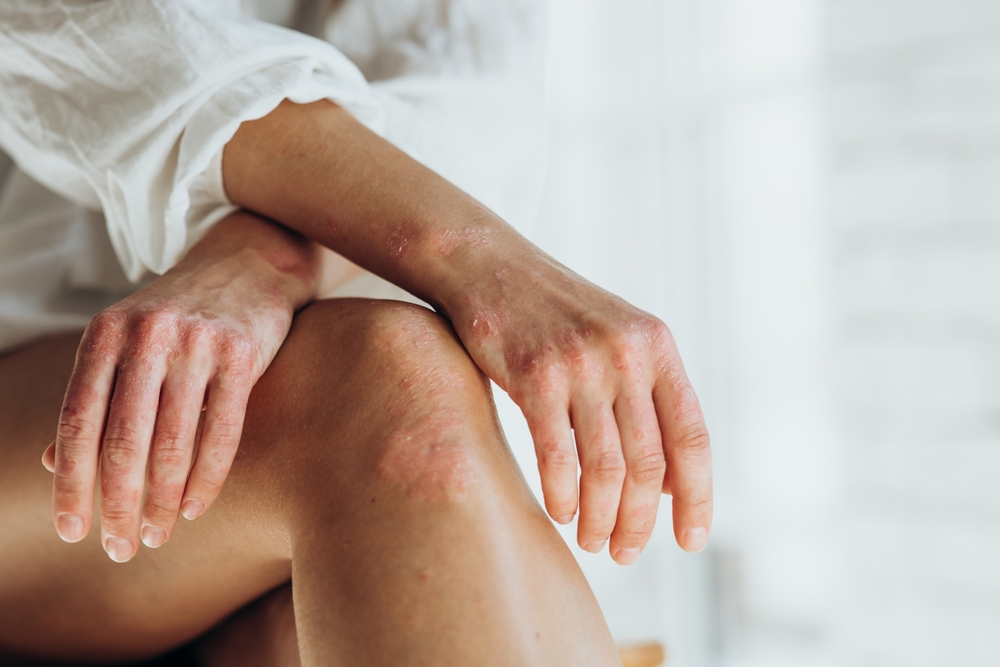
Vitamin D plays an important role in the functioning of our immune system as well as skin health. Low levels of the vitamin have been linked to an increased frequency and severity of eczema symptoms. For those managing this skin condition, maintaining optimal vitamin D levels may help in the control of symptoms and outbreaks. Make sure you talk to your dermatologist or doctor about your vitamin D status and how to make improvements to it.
Read More: 7 Of The World’s Worst Health Conditions That Are Linked To Vitamin D Deficiency
10. Tooth Decay

We know that vitamin D is important for healthy bones, so it is only natural that this means it is important for healthy teeth, too. Insufficient vitamin D levels can weaken your teeth and make you more susceptible to dental issues. These include cavities, tooth fractures, and tooth decay. Maintaining a healthy vitamin D status is crucial to the maintenance of a healthy smile.
11. Gum Disease
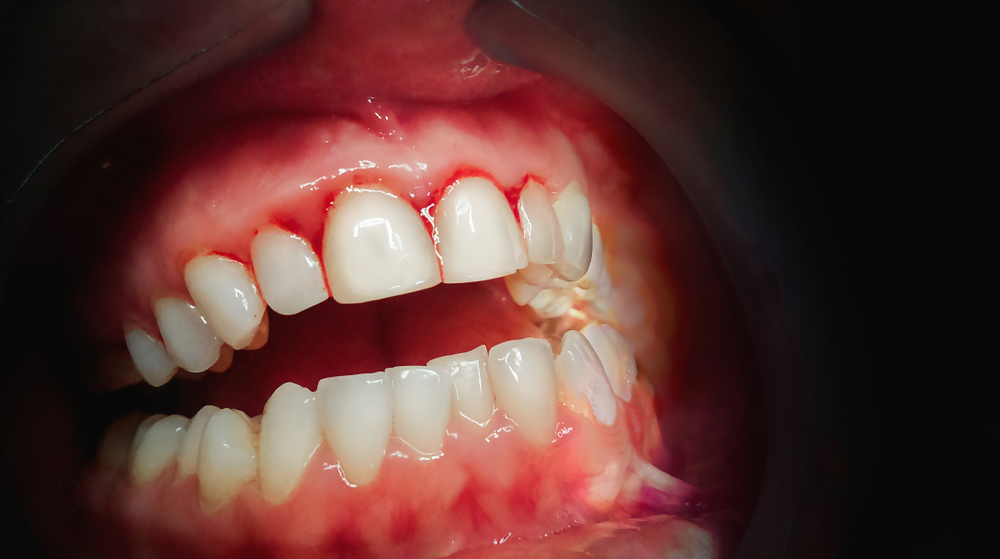
When it comes to oral health, vitamin D isn’t just going to help you to maintain healthy, strong teeth. It is also essential for healthy gums. Low levels of the vitamin have been associated with an increased risk of periodontitis, a gum disease that causes inflammation and affects the health of the tissues surrounding your teeth.
Read More: Researchers find that brains with more vitamin D function better
12. UTIs
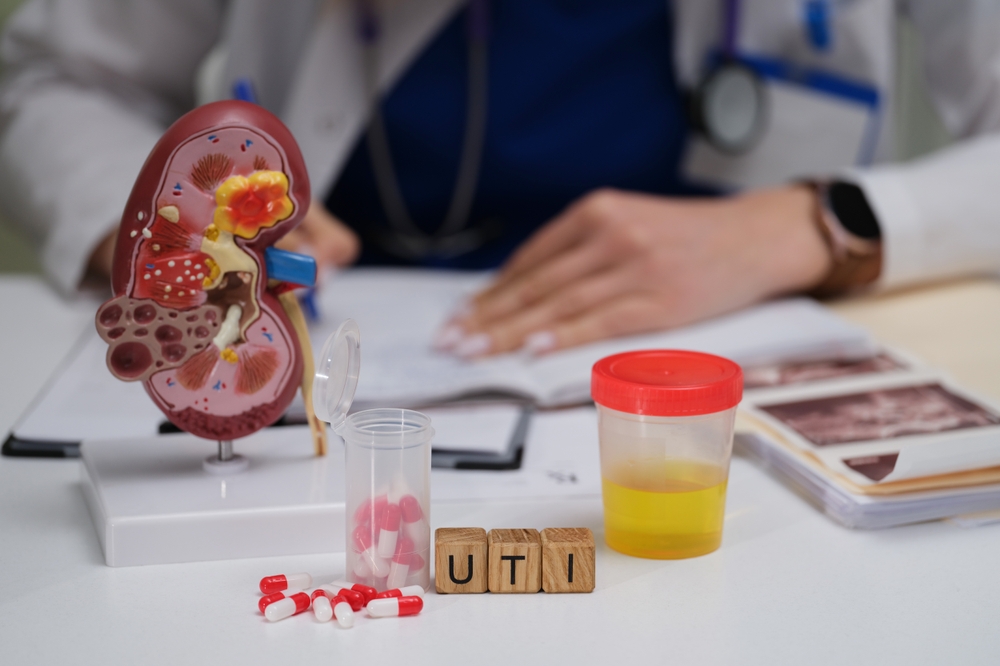
For UTI prevention, many women tend to focus on a few things: Going to the bathroom after intercourse, cranberry juice, and wiping front to back when on the toilet. The reality is that there are so many other aspects to UTI prevention, and one of them is vitamin D status. Vitamin D helps in preventing infections by supporting the production of natural antibiotics in the body. A deficiency in vitamin D may increase the risk of UTIS, especially in individuals who are already prone. If you are unsure, ask your doctor to check your vitamin D status.
13. Incontinence
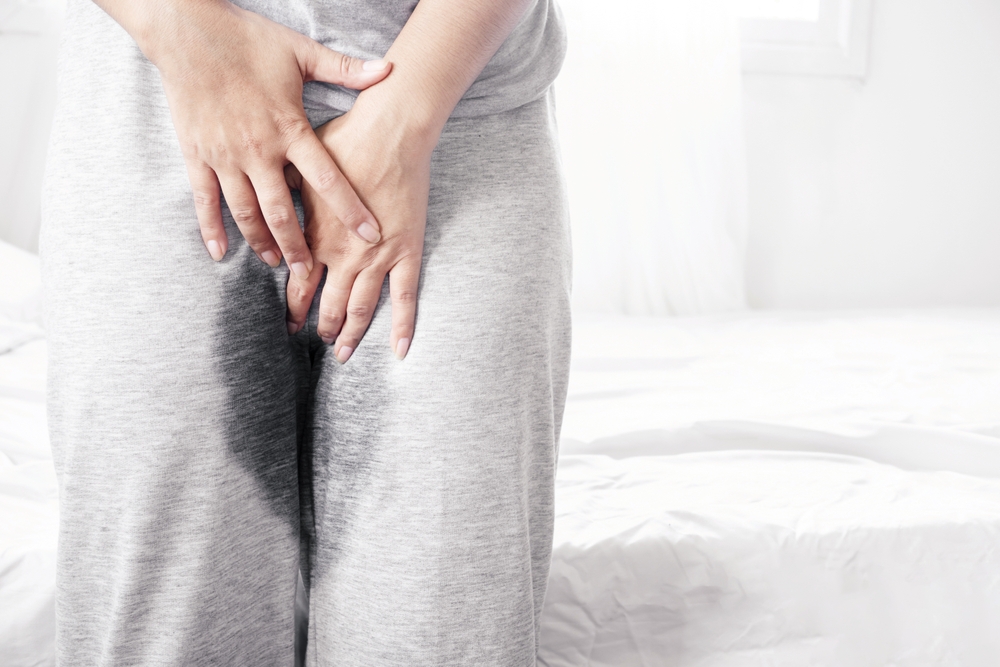
Incontinence is something that many people, especially women, tend to think of just another con on the list of negatives about aging. Again, this doesn’t have to be a given. Vitamin D is critical for muscle strength, including the muscles that support the pelvic floor. Low levels of vitamin D have been associated with pelvic floor disorders, which can lead to urinary and fecal incontinence, as well as pelvic organ prolapse.
14. Rickets
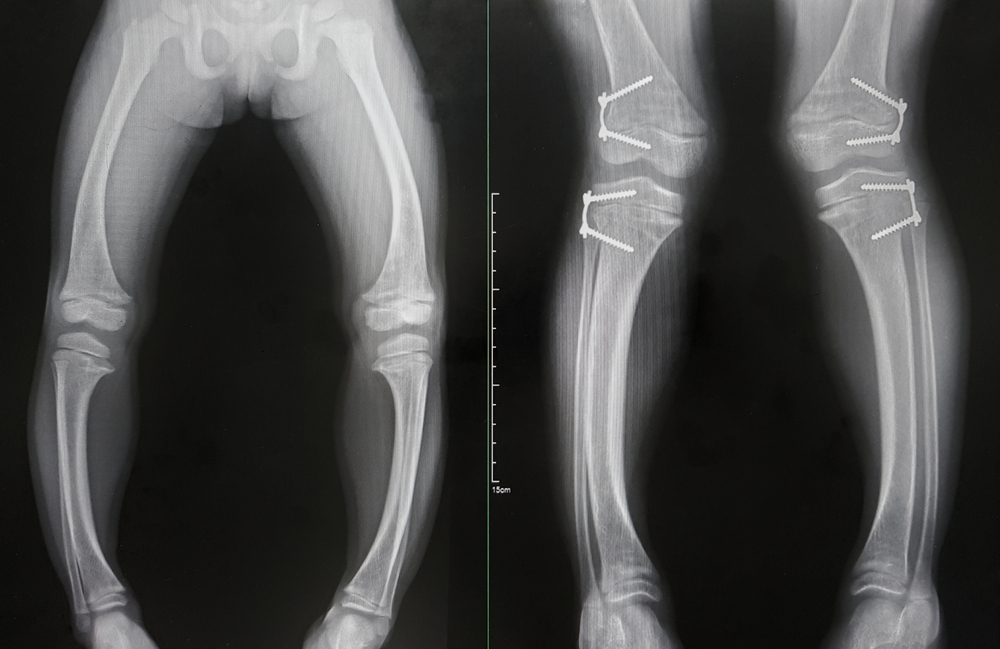
Rickets is characterized by the softening and weakening of bones in children. It is linked to a prolonged deficiency of vitamin D. Adequate supplementation with vitamin D and calcium can help correct the bone damage associated with nutritional rickets. It is crucial for your child’s health that you follow your doctor’s suggestions about nutrition carefully. There are reasons why children, particularly young children and babies, require certain foods, calories, and fats – they are critical to their growth and development. If you suspect that your child may not be developing in the right way, speak with your doctor and have your child’s vitamin D status monitored.
The Bottom Line

Maintaining optimal levels of vitamin D is essential for overall health and well-being. Unfortunately, it can be a difficult vitamin to obtain for many people around the world. If you experience any of these weird symptoms, consider consulting a healthcare provider and getting your vitamin D levels checked. Vitamin D deficiency can severely affect your health if you let it go on too long, so speak with your doctor about how you can improve your status.
Disclaimer: This information is not intended to be a substitute for professional medical advice, diagnosis or treatment and is for information only. Always seek the advice of your physician or another qualified health provider with any questions about your medical condition and/or current medication. Do not disregard professional medical advice or delay seeking advice or treatment because of something you have read here.
Read More: Latest Study Explores the Positive Impact of Vitamin D on Health in Older Adults
